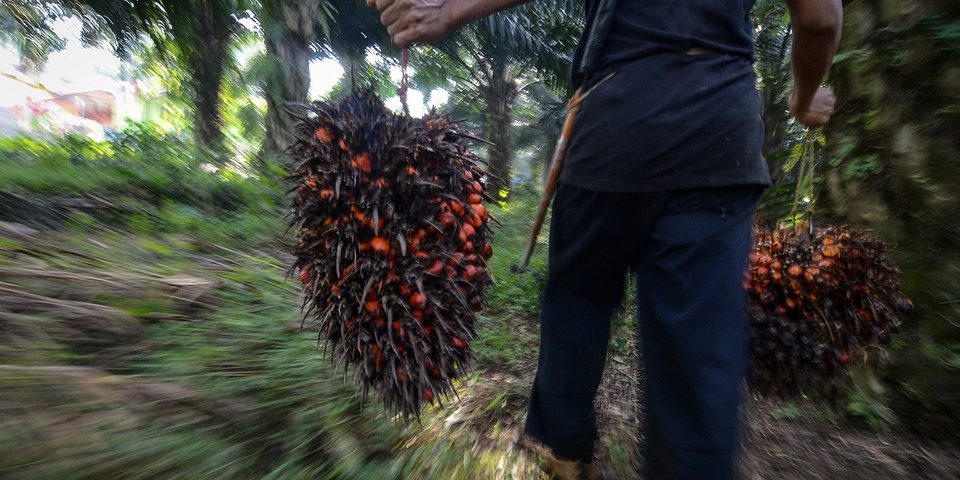Oil palm smallholders are on the path towards sustainability with Indonesian Sustainable Palm Oil (ISPO) certification. And palm oil critics should take note of this.
The Indonesian palm oil community is well aware of how these smallholders serve as a backbone to the country’s palm oil output. Smallholders produce more than 40 percent of the palm oil output and control more than 41 percent of the total plantation area. Unfortunately, they are getting the cold shoulder from Indonesia’s palm oil export partners in the face of anti-palm oil campaigns.
The government and industry continuously remind other countries of palm oil’s significance to sustainable development and the sector more broadly. Whilst governments and NGOs —particularly in the European Union— “double down” their anti-palm oil campaign. This negative campaign has now extended to small farmers, claiming that palm oil leaves communities worse off economically.
This is, of course, false. Palm oil has proven itself to significantly spur economic and social development among small farmers. Million smallholders have escaped from poverty.
For Indonesia, the challenge now is to bring these farmers onto its environmental path. And this environmental path has brought the country’s deforestation rate to a record-low.
ISPO certification will catapult the smallholders towards sustainable development. The certification is mandatory for all plantations. The government has granted smallholders a five-year phase-in period to make the transition.
Some smallholders, however, are hesitant to pursue the ISPO certification, but this is understandable.
Compliance with regulations —whether it is record-keeping, stricter environmental practices, or better occupational safety and health— is a cost for farmers. These costs have hindered smallholders from becoming ISPO-certified under any number of voluntary certification schemes.
That is the key difference between ISPO and the talk around certification schemes that have come before it: they have the government’s full support that is able to provide technical and financial resources to make sustainability certification happen.
Smallholders are seeing some major sticking points on the technical side. Proving the legality of land ownership or use rights is easier said than done in Indonesia. But this is among the reasons why the five-year grace period plays such a critical role.
Last month, a coalition of four Indonesian small farmer groups —including SPKS and Apkasindo— have put forward a list of demands on preventing deforestation, extending the current moratorium, licensing evaluation, and improving productivity of palm oil regulation (2018 Presidential Instruction). So there is a clear understanding of the importance of Indonesia’s sustainability path among smallholders.
Their list of demands did not convey any opposition to the ISPO.
They mainly urged for the acceleration of land titling certificates in hopes to get smallholders ISPO-certified. They also called for the lowering of economic barriers to enable smallholders to better participate in Indonesia’s palm oil value chain.
This position is significant for two reasons.
Firstly, it illustrates how the strengthening and revision process for ISPO were successful and inclusive. The process is guarded with the 2019 Presidential Instruction on the 2019-2024 national plan on sustainable palm oil. Across multiple ministries, agencies, provinces, and regencies who went out of its way to ensure the views of all stakeholders were included.
Secondly, it demonstrates how the Indonesian palm oil community is now on the same page and walking on the same path towards sustainability in the industry.
This solidarity for the sector is something unique to Indonesia.
It is essentially a renewal of the partnerships that were originally created and envisioned under the nucleus-plasma estate model.
This solidarity also presents a unique opportunity for the Indonesian palm oil community.
Indonesia’s critics have long tried to pit us against each another — smallholders versus companies, communities versus governments. It is true that the palm oil community does not always see eye-to-eye, but this is the inherent tension between those buying and selling, or those making rules and those following them.
Working towards sustainability —through ISPO— is the community’s common goal. Governments and NGOs from outside of Indonesia need to recognize and understand this. But what is even more important is that they contribute to and support this goal. Not undermine it. Doing so will only undermine Indonesia’s sustainable development, which is now yielding significant results.
Source: Jakartaglobe.id










